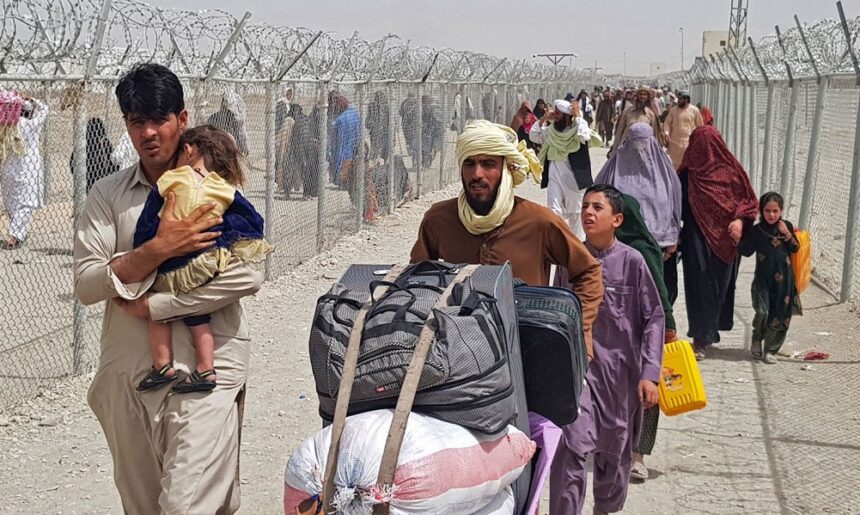More than 250,000 Afghan refugees returned home from neighboring Pakistan and Iran in April, the United Nations High Commissioner for Refugees (UNHCR) reported late Sunday.
“Among them are women and girls, who face an uncertain future with restrictions on education, jobs and freedom of movement. Any returns must be voluntary, safe and dignified,” the UNHCR said in a post on X.
Nearly seven million Afghan refugees are living outside the country – a large percentage of whom live in Pakistan and Iran.
Last year, the Pakistani government said it would expel as many as three million Afghans this year. Iran have also called on undocumented Afghans living in the country to return home.
However, with the high levels of poverty and unemployment in Afghanistan, the returning refugees are in urgent need of assistance.
Many refugees who have returned from Pakistan have had to leave mostly everything behind, including houses, businesses and possessions.
Transit camps have been set up at the border crossings to accommodate the return refugees, and international organizations, along with the Islamic Emirate, have been striving to ease the return of the refugees as much as possible.
However, funding cuts in humanitarian assistance has had a huge impact on the level of assistance that organizations can provide.
Urgent funding appeal
Last week, the UN Refugee Agency (UNHCR) warned that an even deeper humanitarian crisis is looming in Afghanistan as tens of thousands of Afghan refugees return from neighbouring countries.
UNHCR spokesperson Babar Baloch said that the agency urgently needs $71 million to assist those arriving home. Baloch said these refugees face desperate conditions once in the country.
In April, more than 251,000 Afghans returned in adverse circumstances from Iran and Pakistan, including over 96,000 who were deported, Baloch said.
He said the UNHCR continues to advocate with the governments of Iran and Pakistan that returns to Afghanistan must be voluntary, safe and dignified. “Forcing or putting pressure on Afghans to return is unsustainable and could destabilize the region,” he said.
“While UNHCR recognizes the many challenges – including economic pressures – facing these countries that have hosted millions of Afghans for decades, we have also consistently shared our concerns that regardless of their legal status, people forced to return to Afghanistan may encounter serious protection risks,” Baloch said.
Since 2023, more than 3.4 million Afghans have returned or been deported from Iran and Pakistan, including over 1.5 million in 2024 alone.
The UNHCR said such mass returns have strained the capacity of many provinces in Afghanistan and exacerbated the risk of further internal displacement.
The organization also warned that there has been new displacement into Iran and Pakistan, and heightened risks of onward movements towards Europe.
In 2024, Afghans became the largest group (41 percent) of irregular arrivals from the Asia-Pacific region into Europe.












